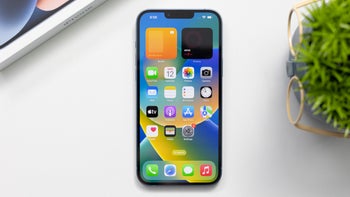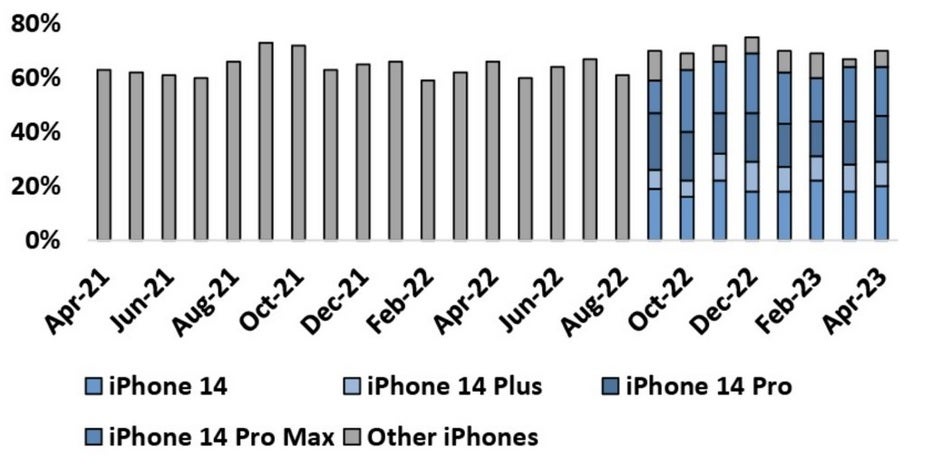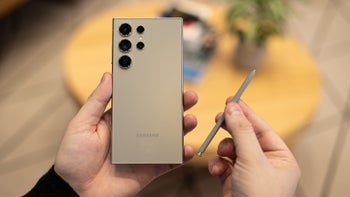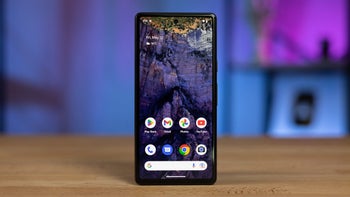Verizon, T-Mobile, and AT&T subscribers are staying away from buying one iPhone 14 series model

With the iPhone 12 mini and iPhone 13 mini unable to maintain the sales pace set by the rest of the iPhone 12 and iPhone 13 lines respectively, Apple tried something different last year with the iPhone 14 Plus. The device carries a 6.7-inch OLED panel matching the size of the display on the iPhone 14 Pro Max although it features an old-school 60Hz refresh rate. It also has "the notch" (no Dynamic Island here), is powered by the hand-me-down A15 Bionic, and sports a pair of 12MP image sensors on the back (one Wide, the other Ultra-wide).
To really sell the phone, Apple gave it the largest capacity battery ever placed on an iPhone at 4325mAh. And it even added some nostalgia by bringing back the "Plus" name that it used from the iPhone 6 line through the iPhone 8 series. Priced at $899, the iPhone 14 Plus isn't a cheap phone but it does give you the large-screened, long-lasting battery experience for less money.
Investment firm JP Morgan had previously noted that the iPhone 14 series is outselling previous iPhone lines at this stage of their lives. In a note written to its clients obtained by AppleInsider, the Wall Street firm's analysts wrote, "Overall iPhone share increased to 67% across the three carriers [in April]." Slightly higher than the 66% share reported for March, JP Morgan noted that this is "markedly better relative to share in the month of April for prior product cycles."

The top-selling model in March, based on sales to subscribers of the three major U.S. carriers, was also the priciest, the iPhone 14 Pro Max. But that has since changed and JP Morgan says that in April (the latest data available), the basic iPhone 14 was the top-selling iPhone model. The data shows the iPhone 14 making up 19% of sales of the iPhone by the top three U.S. wireless providers; the iPhone 14 Pro Max has an 18% share. The latest figures show the iPhone 14 Pro's share dropping from 16% to 15%. The iPhone 14 Plus is responsible for just 7% of the iPhone sales rung up by Verizon, T-Mobile, and AT&T.
JP Morgan doesn't report individual sales of older iPhone models, but it did say that the iPhone 11 line is being purchased by pre-paid subscribers of the nation's top three major wireless providers. The note to clients says, "Though Apple's prepaid market share is low, customers who are buying prepaid Apple phones tend to purchase the iPhone 11 instead of newer models, led by attractive offers. [For] example: Metro has been offering the iPhone 11 for free with 'port-in,' Boost is offering the iPhone 11 at $49.99 with port-in." When you "port-in" your number, you are moving to a new carrier but keeping your old phone number.










Things that are NOT allowed: